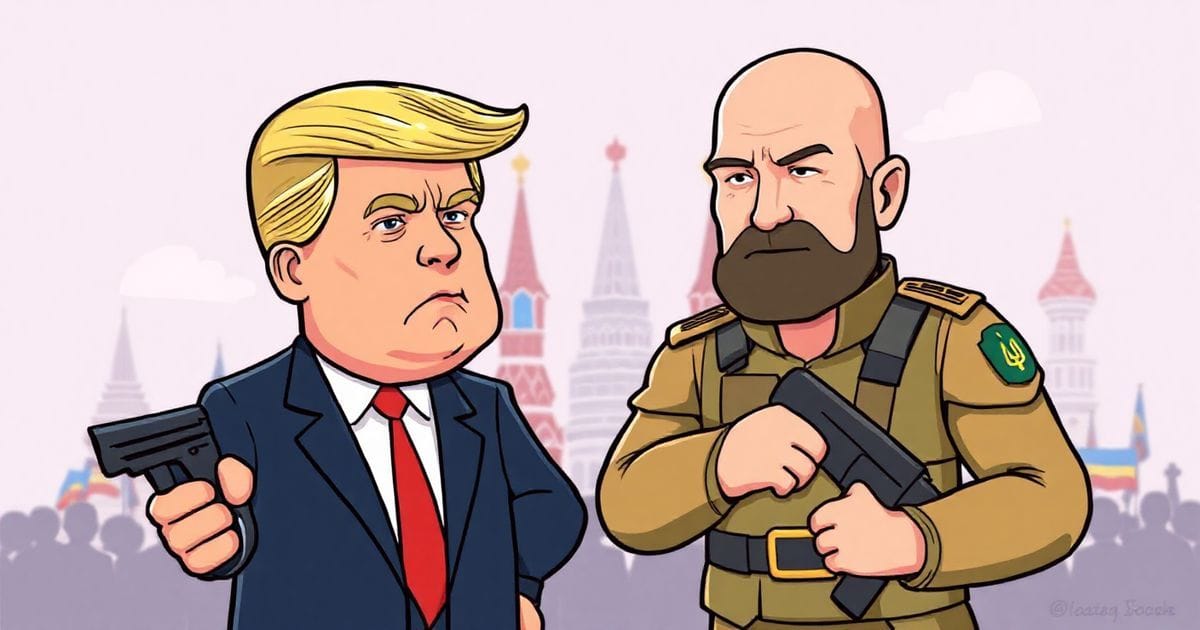The Russia-Ukraine War
The Russia-Ukraine war, now in its fourth year, is one of the most critical global conflicts with no end in sight. Here’s a look at its history, current state, and future implications.
Latest Developments
As of 2025, Russia controls about one-fifth of Ukraine, including Crimea and parts of the eastern and southern regions. Russian troops continue to advance, aiming to fully control the annexed regions. Ukraine has launched counter-attacks, including an incursion into Russia’s Kursk region, showing the ongoing war of attrition with significant losses on both sides.
Recent attacks have been brutal, such as the artillery barrage on Zaporizhzhia, killing at least 13 people and injuring 32. Ukrainian President Volodymyr Zelensky has called for international pressure on Russia, describing its actions as "terror"[1][2].
Key Facts and Analysis
Historical Context
The conflict began in February 2014 when Russian troops, disguised as local "self-defense" units, occupied Crimea after Ukrainian President Viktor Yanukovych was ousted. Russia annexed Crimea after a widely criticized referendum and supported separatists in eastern Ukraine[2][3].
In February 2022, Russia launched a full-scale invasion of Ukraine, recognizing the independence of Donetsk and Luhansk. This invasion was met with strong Ukrainian resistance and international condemnation, leading to a massive refugee crisis with over 7 million displaced and tens of thousands of deaths[3].
Current State
The war is in its fourth year, with the battlefield still fluid but largely static. Russia controls key territories, including Crimea and parts of the Donbas region, while Ukraine has recaptured about 54% of the occupied territory since the full-scale invasion. Western sanctions have hit Russia’s economy hard, and Ukraine faces manpower shortages and economic strain[1][2].
Expert Perspectives
Vladimir Putin
Putin is ready for talks but insists any peace deal must respect Russia’s territorial gains. He demands Ukraine renounce its NATO bid, withdraw forces from annexed regions, and adopt policies friendly to Moscow[1][2].
Volodymyr Zelensky
Zelensky wants a comprehensive agreement rather than a temporary halt to hostilities. He seeks Western troops as peacekeepers and strong security guarantees from the US and other Western partners[2].
Future Implications
Policy Implications
The US may increase military support for Ukraine if Putin doesn’t halt the fighting, including tougher sanctions on Russia’s oil and gas sector. However, there’s concern the US might consider sanctions relief for Russia, undermining leverage over Putin[1][2].
International Relations Impact
The conflict affects global stability, especially in Europe. Failure to achieve a peace deal could lead to further escalation, drawing in other countries and exacerbating tensions between major powers. The war highlights the importance of NATO and European security[3][4].
Public Reaction and Polling
Public opinion in Ukraine and Russia is influenced by the conflict and their leaders’ negotiating stances. Globally, reactions are mixed, with some supporting Ukraine’s sovereignty and others being neutral or sympathetic to Russia[1][2].
Economic and Humanitarian Impact
The conflict has significant economic implications for both Russia and Ukraine. Russia’s economy is affected by Western sanctions, while Ukraine faces manpower shortages and economic strain. Any peace deal must address these economic challenges and include humanitarian aid and rebuilding provisions[1][2].
Future Political Scenarios
Escalation
If Putin refuses to halt the fighting and the US increases military support for Ukraine, the conflict could escalate further, potentially leading to a broader conflict involving Russia and Western countries[1][2].
Stalemate
The tough negotiating postures from both sides could result in a stalemate, prolonging the conflict and causing continued suffering and economic strain[1][2].
Diplomatic Breakthrough
If international mediators can bring both sides to the negotiating table and secure meaningful concessions, a peace deal could be achieved. This would require a delicate balance of power and interests, as well as a willingness to compromise[4].
Conclusion
The Russia-Ukraine war is a complex and deeply entrenched conflict with significant geopolitical, economic, and humanitarian implications. A lasting peace will require more than just political will; it will demand a deep understanding of the historical context, a commitment to addressing the economic and humanitarian crises, and a willingness to navigate the intricate web of international relations. The world watches as the future of Ukraine and European stability hang in the balance.






